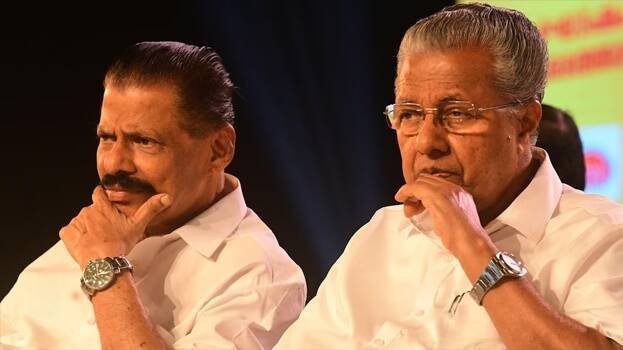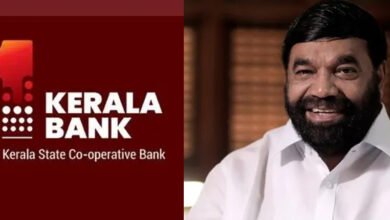
Kochi: Kerala’s political landscape is currently undergoing a remarkable transformation, with the Communist Party of India (Marxist) (CPI-M) making a profound ideological pivot. The party, which historically viewed religion as “the opium of the masses” and often dismissed temples as “centers of superstition,” is now repositioning itself as a staunch protector of Hindu rituals and devotees. This shift has ignited a crucial debate: is Kerala witnessing the emergence of a new political phenomenon, ‘Hindu Communism’?
The intriguing aspect of this change is the CPI-M’s apparent adoption of strategies traditionally associated with the Bharatiya Janata Party (BJP)—a party the Left and the Congress have long accused of fueling Hindu communalism. This has led to speculation that the CPI-M is moving towards hardline Hindutva, while the opposition Congress is gravitating towards soft Hindutva. Recent events offer considerable evidence to support this hypothesis.
The Politics of Spiritual Discourse
The CPI-M’s course correction appears to have its genesis in the backlash it faced over the 2018 Supreme Court verdict allowing women of all ages into the Sabarimala temple. The Pinarayi Vijayan government’s hasty decision to implement the ruling, which included facilitating the entry of non-devotee activists, deeply alienated Hindu devotees and the community at large. This misstep resulted in a massive setback for the CPI-M in the 2019 Lok Sabha elections. While the BJP couldn’t fully capitalize, the Congress, with its soft Hindutva stance, swept the polls.
This electoral defeat forced the CPI-M into a major reassessment. The ‘Ayyappa Sangamam’ (Ayyappa Conclave) organized by the party was seen as an act of penance aimed at regaining lost devotee trust, an indirect admission of error regarding the Sabarimala issue.
The most extraordinary moment came during the inaugural ceremony of the Conclave, where Chief Minister Pinarayi Vijayan lit a traditional lamp in front of a picture of Lord Ayyappa. The Chief Minister then delivered a speech that was uncharacteristically ‘spiritual,’ citing the Upanishads, the Bhagavad Gita, and the Ayyappa mythology—a style commonly reserved for traditional Hindu preachers. This marked a decisive move towards a new ‘Hindutva line’ for the CPI-M, much to the discomfort of traditional communists who once advocated for the decline of temples.
‘Bhagwan Will Not Forgive’: The New Communist Posture
The clearest indication of this ideological conversion came recently via a Facebook post by the Pathanamthitta District Committee of the CPI-M. Responding to criticisms that a minister and party leaders violated ritualistic sanctity during the Aranmula Vallasadya (a feast offered to the deity), the party’s official defense invoked Lord Aranmula, the presiding deity.
The most striking sentence in the post read: “Bhagwan will never forgive those who lie in His name.”
This unprecedented use of “Bhagwan” (God) by an official Communist party unit for political clarification caused an uproar. Although the line was later softened to suggest that people would not forgive those who spread falsehoods, the initial statement unequivocally revealed the CPI-M’s new political ‘line.’ The choice of Pathanamthitta, a district with significant devotee influence, for this experiment underscores its electoral motivation.
A Challenge to the BJP
This ‘Hindu Communism’ approach, which began at the Ayyappa Sangamam and has now been fully implemented in Pathanamthitta, is expected to expand to other districts ahead of upcoming elections. Political observers note that the CPI-M is now outflanking the BJP by articulating a more fervent Hindutva narrative. Some party circles have even suggested that the CPI-M should officially embrace the ‘Ramayana Masam’ (Ramayana Month) observances, traditionally championed by the RSS ideologue P. Parameswaran, to further penetrate Hindu electorates. The possibility of Hindu iconography appearing alongside Marx and Engels in CPI-M offices is no longer a remote idea.
While this new strategy poses an existential threat to the BJP by hijacking its core agenda, it raises a crucial question about the CPI-M’s traditional minority vote bank. This ‘Bhakta (Devotee) Communism’ may create unease among Muslim and Christian communities, potentially driving those votes towards the Congress.
As the Left’s ideology strays from its foundational principles in the name of ‘historical necessity’ and embraces Hindu politics, Kerala is at a critical juncture. Whether this is a mere electoral tactic or a fundamental change in the CPI-M’s character will only be clear in the coming years. Regardless, a Communist party that warns that ‘Bhagwan will not forgive’ is undeniably ushering in a new political era.








